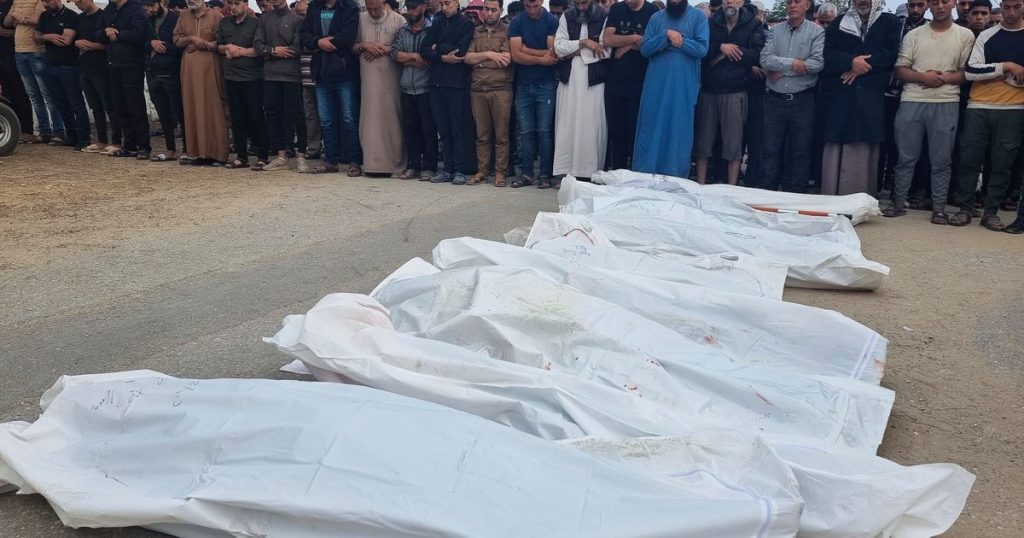The United States is increasing pressure for a cease-fire deal in Gaza, with Secretary of State Antony Blinken presenting a new proposal to Hamas. Israeli airstrikes in Rafah killed 26 people, prompting urgent efforts to reach an agreement. The terms of the proposal were not made public, but Israel has reportedly softened its position, offering to release hundreds of Palestinians in return for a reduced number of hostages. However, Hamas seeks assurances for a complete end to Israel’s assault and troop withdrawal, which has been a major hurdle in negotiations.
The potential for a cease-fire deal has sparked debates in Israel, with some advocating for an end to the war in exchange for potential benefits including normalization of ties with Saudi Arabia. However, there are concerns that pushing ahead with an attack on Rafah to crush Hamas could lead to international isolation. The United States and other allies have warned against an offensive on Rafah, citing the potential for increased casualties and worsening humanitarian crisis in Gaza, where over 1 million Palestinians are seeking shelter.
Egypt has ramped up mediation efforts to avoid an assault on Rafah, while Israel has reportedly lowered its demands for hostage releases in the first stage of a cease-fire deal. The flexibility shown by Israel in negotiations signals a potential shift in approach, although Prime Minister Netanyahu has previously rejected halting the war in exchange for releasing hostages. Pressure is mounting on both sides from families of hostages, urging them to reach an agreement to end the conflict.
Israel has expressed concerns over potential arrest warrants from the International Criminal Court, which is investigating possible war crimes in Gaza. Netanyahu has rejected the ICC’s jurisdiction, emphasizing Israel’s right to self-defense. Any warrants issued could put Israeli officials at risk of arrest in other countries, leading to international condemnation of Israeli actions. The war in Gaza has already resulted in high casualties, displacement of civilians, and accusations of wrongdoing from international bodies.
The ongoing conflict in Gaza dates back to an attack by Hamas militants on Oct. 7, which triggered a massive Israeli offensive. The war has claimed thousands of lives, including civilians, contributing to the humanitarian crisis in Gaza. Israel blames Hamas for fighting from residential areas, leading to a high civilian death toll. The situation has raised concerns about potential war crimes and acts of genocide, with international courts investigating Israel’s actions. The complexity of the conflict and the humanitarian impact on Gaza’s population underscore the urgency of reaching a cease-fire agreement.


